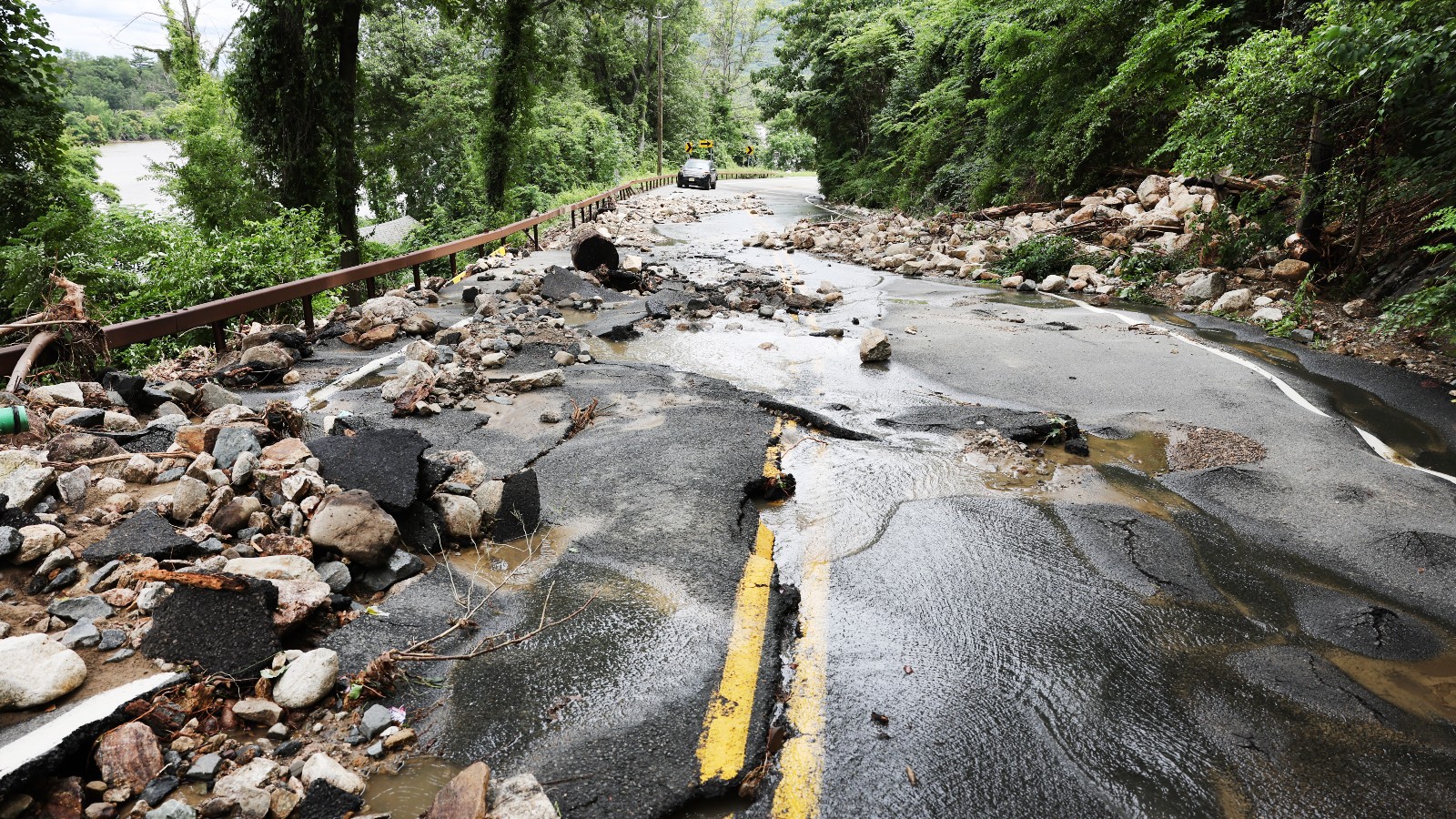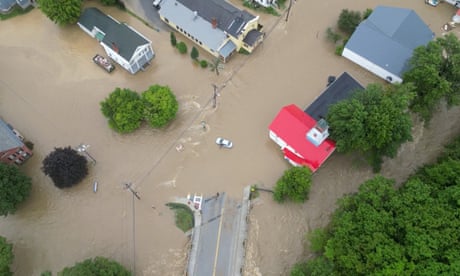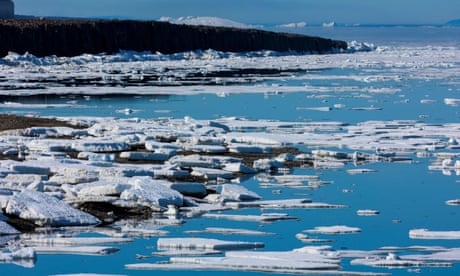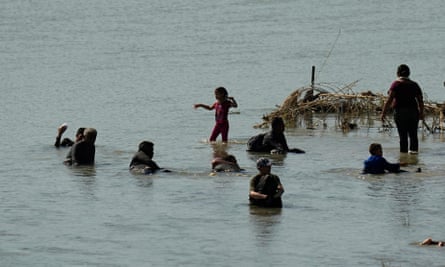Issue of the Week: Environment

The hottest week in history on the planet happened at the neginning of July. Here’s the reporting:
“‘We are in uncharted territory’: Earth logs hottest week on record”
Akielly Hu, News and Politics Fellow, Grist, Environment, Published Jul 10, 2023
The grim milestone arrives as rampant flooding hits the Northeastern U.S., India, and Japan.

This story is part of Record High, a Grist series examining extreme heat and its impact on how — and where — we live.
The world just experienced its hottest week ever recorded, with seven straight days of blistering, historic levels of heat, according to preliminary data released by the World Meteorological Organization, or WMO. The unsettling milestone, set during the first week of July, also follows the hottest June on record.
The news comes amidst a sweep of extreme weather events across the globe, from devastating flooding in the northeastern United States, India, and Japan, to a marine heat wave affecting 40 percent of the world’s oceans. Together, the various events have prompted alarm over the unprecedented climatic changes underway as a result of fossil fuel emissions.
Experts say the extreme heat and severe weather, linked to climate change and the global El Niño weather phenomenon, portend a summer that will continue to be rattled by storms and soaring temperatures.
“We are in uncharted territory,” said Christopher Hewitt, director of climate services at the WMO in a statement released Monday. “We can expect more records to fall as El Niño develops further and these impacts will extend into 2024.”
Over the weekend, severe flooding in New York’s Hudson Valley left hundreds stranded and at least one person dead. In West Point, New York, 7.5 inches of rain fell in just six hours on Sunday. On Monday, parts of Vermont, Connecticut, Rhode Island, and Massachusetts remained under emergency flood warnings as the deluge of rain swept up roads and bridges across the region. Forecasters compared the rainfall to Hurricane Irene, which caused $6.5 billion in damage to homes and other infrastructure along the East Coast and in the Caribbean in 2011.
In India, heavy rain across the northern region of the country killed at least 22 people, officials announced Monday. Flash floods and landslides collapsed buildings and flooded the streets in the states of Punjab, Haryana, Uttar Pradesh, Jammu and Kashmir, Himachal Pradesh, Uttarakhand, and Delhi. In Himachal Pradesh and Uttarakhand, located in the Himalayan region, local authorities asked people to not leave their homes unless absolutely necessary.
Meanwhile, torrential rain across southwest Japan overflowed rivers and triggered landslides. Officials asked tens of thousands of residents in affected areas, including in parts of the Fukuoka and Oita prefectures, to evacuate on Monday. Military troops have been sent in to help with rescue operations. Several factories and train lines in the region have been temporarily closed, and dozens of flights have been canceled. Worrying changes are also happening to the world’s oceans, further fueling a cycle of extreme weather and rising temperatures. Scientists say both climate change and the current El Niño cycle, which typically brings above-average ocean temperatures, play a role in the global marine heat wave affecting 40 percent of all ocean areas. Sea-surface temperatures reached a record high this past May and June, to about 69.6 degrees Fahrenheit. In Florida and other parts of the U.S. South, a crazy-hot Gulf of Mexico is one of the factors driving brutal heat and humidity this week. A recent study found that the Gulf is warming at twice the rate of the rest of Earth’s oceans.
Hotter seas will impact ocean circulation, marine ecosystems, and global fisheries. United Nations climate researchers note that an abnormally warm North Atlantic is of particular concern, due to its outsize role in fueling hurricanes, tropical cyclones, and heavy rain and drought in West Africa.
The events bring into harsh light the real and ever-growing consequences of delaying a transition away from fossil fuels. “Climate change is out of control,” U.N. Secretary-General Antonio Guterres warned last week in response to the shattered heat records. “If we persist in delaying key measures that are needed, I think we are moving into a catastrophic situation.”
. . .
CBS News, July 10, 2023
Paris — The World Meteorological Organization said Monday that early data show the beginning of July saw the hottest week on record globally.
“The world just had the hottest week on record, according to preliminary data,” the WMO said in a statement after climate changeand the early stages of the El Nino weather pattern drove the hottest June on record.
Temperatures are breaking records both on land and in the oceans, with “potentially devastating impacts on ecosystems and the environment,” the WMO warned.
“We are in uncharted territory and we can expect more records to fall as El Nino develops further and these impacts will extend into 2024,” said Christopher Hewitt, WMO Director of Climate Services. “This is worrying news for the planet.”
Driving home the point, a separate study has revealed the huge toll in human lives that extreme temperatures can take.
More than 61,000 people died due to the heat during Europe’s record-breaking summer last year, a study said Monday, adding a call for more to be done to protect against even deadlier heat waves expected in the months and years ahead.
Europe’s killer summer of 2022
Europe, the world’s fastest warming continent, experienced its hottest summer on record in 2022, as countries were hit by blistering heat waves, crop-withering droughts and devastating wildfires.
The European Union’s statistics agency Eurostat had reported an unusually high number of excess deaths over the summer, but the amount directly linked to the heat had not been previously quantified.
A team of researchers looked at data on temperature and mortality from 2015 to 2022 for 823 regions across 35 European countries, covering a total of 543 million people.
The researchers from the Barcelona Institute for Global Health and France’s health research institute INSERM used models to predict the deaths attributable to temperature for each region in every week of 2022’s summer.
They estimated that 61,672 deaths were linked to the heat between May 30 and September 4 last year, according to the study published in the journal Nature Medicine.
A particularly intense heat wave in the week of July 18-24 caused more than 11,600 deaths alone, the study said.
“It is a very high number of deaths,” said Hicham Achebak, an INSERM researcher and study co-author.
“We knew the effect of heat on mortality after 2003, but with this analysis, we see that there is still a lot of work that needs to be done to protect the population,” he told AFP.
More than 70,000 excess deaths were recorded in 2003 during one of the worst heat waves in European history.
Which countries had it worst?
Last year France recorded the biggest rise in heat compared to its previous summer average, with a jump of 2.43 degrees Celsius, the study said. Switzerland was not far behind with a 2.30C rise, followed by Italy with 2.28C and Hungary with 2.13C.
Italy had the highest death toll linked to the heat with 18,010, followed by Spain with 11,324 and Germany with 8,173.
The majority of deaths were of people over the age of 80, the study said.
Around 63 percent of those who died due to the heat were women, the analysis said.
The difference became more stark over the age of 80, when women had a mortality rate 27 percent higher than men.
Previous research has shown that Europe is warming at twice the global average.
While the world has warmed an average of nearly 1.2C since the mid-1800s, last year Europe was around 2.3C hotter than pre-industrial times.
“The urgent need for action”
Unless something is done to protect people against rising temperatures, by 2030 Europe will face an average of more than 68,000 heat-related deaths every summer, the new study estimated. By 2040, there would be an average of more than 94,000 heat-linked deaths — and by 2050, the number could rise to over 120,000, the researchers said.
“These predictions are based on the current level of vulnerability and future temperatures,” Achebak said. “If we take very effective measures, that vulnerability can be reduced.”
Raquel Nunes, a health and climate expert at the U.K.’s Warwick University not involved in the research, said the study “highlights the urgent need for action to protect vulnerable populations from the impacts of heat waves”.
Chloe Brimicombe, a climate scientist at Austria’s University of Graz, said it “demonstrates that heat prevention strategies need to be re-evaluated, with gender and age especially in mind.”
. . .
“‘Uncharted territory’: UN declares first week of July world’s hottest ever recorded”
The Guardian and agencies, London, Mon 10 Jul 2023
Extreme temperatures break records as scientists warn El Niño is set to get worse

The beginning of July was the hottest week on record for the planet as a whole, according to the World Meteorological Organization. This year had already seen the hottest June on record, the UN body said, driven by climate change and the early stages of an El Niño weather pattern.
It is the latest in a series of records halfway through a year that has seen a drought in Spain and fierce heatwaves in China as well as the US.
“The world just had the hottest week on record, according to preliminary data,” the WMO said in a statement, adding that temperatures were breaking records on land and in the oceans, with “potentially devastating impacts on ecosystems and the environment”.

“We are in uncharted territory and we can expect more records to fall as El Niño develops further and these impacts will extend into 2024,” said Christopher Hewitt, WMO director of climate services.
“This is worrying news for the planet.”
Global sea surface temperatures were at record highs for the time of the year both in May and June, said Hewitt. “It is not only the surface temperature, but the whole ocean is becoming warmer and absorbing energy that will remain there for hundreds of years.”

“If the oceans are warming considerably, that has a knock-on effect on the atmosphere, on sea ice and ice worldwide,” said Michael Sparrow, chief of the world climate research programme at the WMO.
But Sparrow said El Niño’s effects would probably be felt more acutely later in the year. “El Niño hasn’t really got going yet,” he said.
Europe’s climate monitoring service Copernicus told the AFP news agency that its data also showed last week was likely to be the hottest since records began in 1940.

Copernicus said that its data suggested Thursday was likely to have seen the highest global average temperature, after several record-breaking days earlier in the week.
‘Out of control’
Along the US-Mexico border, federal agents reported that extreme temperatures over the weekend contributed to 10 people dying and another 45 people being rescued.
The south-western US is bracing for another week of blistering temperatures, with forecasters on Monday extending an excessive heat warning through the weekend for Arizona’s most populated area, and alerting residents in parts of Nevada and New Mexico to stay indoors.

The metro Phoenix area was on track to tie or to break a record set in the summer of 1974 for the most consecutive days with the high temperature at or above 110F (43C).
Last week the Canadian ministry of natural resources said the number of wildfires in the country – more than 670 on Friday – was “off the charts” with a long and difficult summer ahead.
Smoke from the fires so far this season has polluted the air in Canada and neighbouring US, affecting more than 100 million people.
In the US, Texas was experiencing a prolonged “heat dome” in which warm air is trapped in the atmosphere like a convection oven, while in Europe, Spain was bracing for its second heatwave in a matter of weeks.
In southern Iraq, the fabled marshland was having its worst heatwave in the past 40 years, the UN’s Food and Agriculture Organization said on Monday, warning of a “devastating impact” on the ecosystem as well as farmers and fisheries.

The UN secretary general, António Guterres, has said “the situation we are witnessing now is the demonstration that climate change is out of control”.
Heat-related deaths
Higher than normal temperatures also cause health problems ranging from heatstroke and dehydration to cardiovascular stress.
Research published on Monday found that more than 61,000 people died due to the heat during Europe’s record-breaking summer of 2022.
The majority of deaths were of people over the age of 80 and about 63% of those who died due to the heat were women, according to the research published in the journal Nature Medicine.
Experts say heat exhaustion and heatstroke are likely to become more common as the impacts of climate change grow more and more extreme.
Heatstroke is the most serious heat-related illness and happens when the body loses its ability to sweat.

Jon Femling, an emergency medicine physician and scientist at the University of New Mexico, said the body tried to compensate by pumping blood to the skin as a way to cool off. The more a person breathed, the more they lost fluids, becoming increasingly dehydrated.
“So one of the first things that happens is, your muscles start to feel tired as your body starts to shunt away,” he said. “And then you can start to have organ damage where your kidneys don’t work, your spleen, your liver.”
The stress on the body may result in the brain not getting enough blood, he said. With heat exhaustion, the body could also become cold and clammy. Older people, children and those with health conditions could face greater risks when the temperatures were high.
Agence France-Presse contributed to this report
- Issue of the Week: Human Rights, Economic Opportunity, War, Hunger, Disease
- “Iran signals fast trials and executions for protesters as death toll in crackdown goes over 2,500”, Associated Press
- “Joe Rogan breaks with Trump over ‘Gestapo’ ICE operations”, The Hill
- “The Notorius M.T.G.”, The New Yorker
- “Elon Musk’s A.I. Is Generating Sexualized Images of Real People, Fueling Outrage”, The New York Times
- January 2026
- December 2025
- November 2025
- October 2025
- September 2025
- August 2025
- July 2025
- June 2025
- May 2025
- April 2025
- March 2025
- February 2025
- January 2025
- December 2024
- November 2024
- October 2024
- September 2024
- August 2024
- July 2024
- June 2024
- May 2024
- April 2024
- March 2024
- February 2024
- January 2024
- December 2023
- November 2023
- October 2023
- September 2023
- August 2023
- July 2023
- June 2023
- May 2023
- April 2023
- March 2023
- February 2023
- January 2023
- December 2022
- November 2022
- October 2022
- September 2022
- August 2022
- July 2022
- June 2022
- May 2022
- April 2022
- March 2022
- February 2022
- January 2022
- December 2021
- November 2021
- October 2021
- September 2021
- August 2021
- July 2021
- June 2021
- May 2021
- April 2021
- March 2021
- February 2021
- January 2021
- December 2020
- November 2020
- October 2020
- September 2020
- August 2020
- July 2020
- June 2020
- May 2020
- April 2020
- March 2020
- February 2020
- January 2020
- December 2019
- November 2019
- October 2019
- September 2019
- August 2019
- July 2019
- June 2019
- May 2019
- April 2019
- March 2019
- February 2019
- January 2019
- December 2018
- November 2018
- October 2018
- September 2018
- August 2018
- July 2018
- June 2018
- May 2018
- April 2018
- March 2018
- February 2018
- January 2018
- December 2017
- November 2017
- October 2017
- September 2017
- August 2017
- July 2017
- June 2017
- May 2017
- April 2017